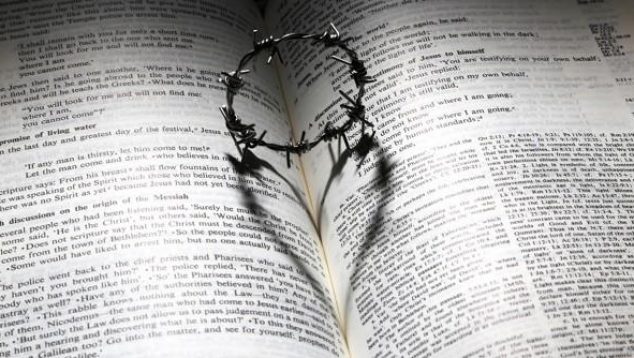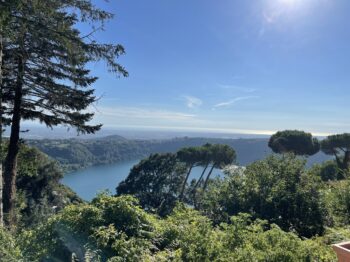In Albert Camus’ novel The Plague, a Jesuit called Paneloux preaches two sermons. He preaches the first one to a cathedral packed full of desperate people, terrified by the onset of bubonic plague in their town into turning to God for the first time in years. The sermon begins:
Brothers and sisters, we are suffering. Brothers and sisters, we are getting what we deserve.
This appalling holocaust, he tells them, is God’s way of teaching people how dependent they are on divine help, how arrogant to presume that they can do without faith. The pandemic is God’s punishment for sins, aimed at bringing the townspeople back to the obedience and service that they owe. Similar suggestions were heard in the first years of the AIDS pandemic and are being voiced now.[i]
The sermon leaves unanswered the questions such an approach begs about a God who calls us to heel through sending us horrifying illness. Paneloux’s words fit neatly into a theological system but show little awareness or concern for the human cost of suffering. But the preacher is about to learn a harsh lesson. Being a good Jesuit, he volunteers to nurse the dying, and is at hand when the little son of the town’s judge dies in agony. The book’s hero, a doctor and an unbeliever, had been present at the first sermon. He looks over the child’s bed to the priest and says: ‘This one, at least, was innocent.’
Paneloux preaches a second sermon in the aftermath of the boy’s death. The cathedral is less full. God has delivered no quick rescue package, so the bereaved plague survivors have turned to other securities. The priest’s certainties are shattered, his neat theologising lying in ruins before the brutal experience of innocent suffering. His previous explanations ring hollow, even to his own ears. He can no longer preach a God who chooses to visit the sins of the world on a child. So, with humility and resignation, he preaches a mysterious God whose ways are not ours, and who permits suffering for reasons at which we cannot guess. The only answer is patience, submission and faith in God’s ultimate mercy. Shortly afterwards, Paneloux himself becomes ill and dies. He may have caught the plague, but his symptoms are ambiguous, and his death certificate reads: ‘Cause of death in doubt’. The doubt within him overwhelms him and he cannot live with it.
Preaching or writing about faith in a time of pandemic presents a unique challenge. The risk lies in sounding either smugly banal or judgmental. The hard facts of what is happening around us resist the comforts of soft religiosity. A sermon could take the approach current in parts of the media, seeking to assign blame, or at least responsibility: if only the government/the Chinese/the World Health Organisation/the medical establishment had warned us, had acted more quickly. This is the apocalypse that the climate change lobby warned us about; if only we had listened. It’s the fault of big business, or a mysterious enemy, or whichever political system or ethnic group we happen to dislike and fear the most. Such secular sermons are falling on eager ears in some quarters, but they do little to help us come to philosophical or theological terms with suffering.
What sort of a sermon might we have preached or wanted to hear in the aftermath of 9/11, at a memorial service for the Nazi Holocaust, or at the funeral of a beloved child? A person in search of faith might want a sermon that makes sense of the big questions: if God is all-loving, how can so much evil and suffering take place? If God is all-powerful, why does God not act to prevent it? A person trying to hold on to their faith might hope to reconcile their image of the loving protector and saviour with the cruel realities of life. Believers often find themselves arguing on God’s behalf, seeking to explain or even justify this One in whom they believe and trust, but whose ways are strange, not only to those who don’t believe, but also, and sometimes more painfully, to those who do. The prophet Isaiah speaks of a God who hides in mystery (Isaiah 45:15). God is a hidden God, a God rendered incomprehensible by the scandal of human suffering. Psalm 91, in contrast, speaks of a God who rescues and saves us from deadly plague, from our enemies and from any threat of violence or danger. The psalmist is honest about the human predicament, but there is a corresponding confidence that God will act and come to the rescue. But history tells us otherwise. There was no rescue in Auschwitz, in the killing fields of Cambodia, or for the murdered children whose deaths regularly haunt our newspapers. There has been no rescue so far for the thousands dying of Covid-19.
A much-repeated story tells of a man who falls over a deep precipice. Hurtling down to his doom, he grabs onto an overhanging branch and swings over the abyss. In his terror he calls out, ‘Is there anyone up there who can help me?’ God replies, ‘Yes, I’m here’. ‘Is that God?’ calls the man. ‘Yes’, replies God. ‘Will you help me?’ ‘Certainly’, says God, ‘but you need to trust me and do what I say’. The man makes desperate promises to trust, repent, go to church every Sunday for evermore if only God will rescue him. ‘Good’, says God, ‘I’ll rescue you. Now… let go of the branch.’ There is a long pause, and the man shouts, ‘Is there anyone else up there?’
God invites us: ‘Turn to me and be saved, for I am God. There is no other.’ (Is 45:22) This God is the only one we’ve got. We might want a God we understand better, or who is more predictable, but God is God, there is no other. We cannot change God, so our only hope is to change ourselves and our perspective on God if we want some insight into human suffering. In general, religiously oriented people hold one of two approaches to it. These have been called the meaning context and the support context.[ii] The meaning context presumes that God is the direct cause of suffering and causes it for a specific reason. We try to see our suffering from God’s perspective in order to understand it and therefore cope with it better. Dr Elizabeth Kübler-Ross, the pioneer of pastoral work among the dying, noticed five stages in the process of dealing with mortal illness: denial, anger, bargaining, depression and acceptance. [iii] In the meaning context, we expect God to take our suffering away or mitigate it. If this is not forthcoming, we at least pray that God will reveal the reason for sending it, so that we can suffer with a sense of meaning and coherence. Many people cannot believe in God precisely because they make these attempts to understand suffering and are devastated when they fail.
In the support context, people are not asking ‘Why, God?’ but, ‘Help me, God’. The assumption is that God can and will give strength in suffering. The foundation of faith here is an experienced relationship with God, encountered both as creator and sustainer of the universe and as one who remains utterly other and mysterious. The resolution of suffering comes from the conviction that God is with us. God-with-us is made visible in Christ who hangs on the cross with us, whose body is in agony every day in the bodies of suffering children, women and men. The ability to experience oneness with the suffering Christ allows us to perceive what is potentially faith-threatening as faith-integrating.
Jesus’s followers don’t suffer less than others. His own mother had her heart pierced with the sword of sorrow. If we needed a palpable reminder that being a Christian doesn’t make suffering lighter, or significantly easier, we need only look to Italy, where priests who ministered to those suffering from the virus have been struck down themselves and elderly nuns in their care homes have died in their dozens. St Paul exclaims: ‘I have been crucified with Christ’, but he goes on to say, ‘Yet I live, no longer I, but Christ lives in me.’ (Gal 2:20)
This union with Jesus crucified and risen is the goal of the Christian life. In him we see embodied the support context approach to suffering. Despite his pleas in Gethsemane, his suffering is neither removed nor mitigated, but he receives strength for what is to come. Like any human being faced with the fear and agony of suffering, Jesus begs to be relieved of it, but implicit in his prayer, beyond the question why, is the question how? How can I bear this? The answer is given clearly: through loving union with his God and Father. As soon as Jesus takes this to heart, we see a transformation. From then on, nothing can shake that union. When he stands before Pilate, Herod and the Sanhedrin, when he is denied by his closest friend, paraded in front of his enemies, nailed to a cross, his resolution is unshakable. He is even able to share the consolation of union that he received in the garden with a man hanging beside him: ‘Truly I tell you, today you will be with me in Paradise’. (Lk 23:43)
Another Jesuit recently stood, not in a cathedral but in the eerie emptiness of St Peter’s Square, a lonely figure under the driving rain, as he prayed for a world stricken by a pandemic and a country brought to its knees. Solitary though he looked, Pope Francis emphasised the closeness of Jesus to the world’s pain, the commonality of suffering and the vital need of solidarity in such times,
We find ourselves afraid and lost. Like the disciples in the Gospel we were caught off guard by an unexpected, turbulent storm. We have realized that we are all in the same boat, all of us fragile and disoriented, but at the same time important and needed, all of us called to row together, each of us in need of comforting the other. We are all in this boat… together. Just like those disciples, who spoke anxiously with one voice, saying ‘We are perishing’ (Mk 4:38), so we too have realized that […] we can only do this together. [iv]
Unlike Père Paneloux, he doesn’t begin by telling us that we are being punished, but he does call on us to be honest in our scrutiny of the lives that many of us lived pre-corona.
The storm exposes our vulnerability and uncovers those false and superfluous certainties around which we have constructed our daily schedules, our projects, our habits and priorities. It shows us how we have allowed to become dull and feeble the very things that nourish, sustain and strengthen our lives and our communities.
As the days of isolation go by and we become more accustomed to living without the distractions and resources that were second nature to us, we find ourselves vulnerable to our circumstances and to the impulses embedded in our own inner world. The ‘stereotypes with which we camouflaged our egos’ fall away in the silence of isolation and we are confronted by our addiction to immediate satisfactions and our indifference to others.
Greedy for profit, we let ourselves get caught up in things, and lured away by haste. We did not stop at your reproach to us, we were not shaken awake by wars or injustice across the world, nor did we listen to the cry of the poor or of our ailing planet. We carried on regardless, thinking we would stay healthy in a world that was sick.
These are challenging words, but they are a wake-up call rather than a reproach. Pope Francis reminds us that our suffering is integrated within our faith not by insights into God’s reasons, which remain mysterious and unknown, but by the assurance of God’s strength. The compassion, or suffering alongside, of Jesus amid the scandal of our suffering becomes the strength and wisdom of the faith-filled person. Union is the most powerful answer to our questions at such a time: union with God and with one another,
In the face of so much suffering, where the authentic development of our peoples is assessed, we experience the priestly prayer of Jesus: ‘That they may all be one’ (Jn 17:21)
In an interview just published, he takes up this theme again.[v] He speaks of another literary priest, the character of Cardinal Federigo Borromeo in Alessandro Manzoni’s The Betrothed, which centres on the Milan plague of 1630. He describes the cardinal as a hero, but adds,
Yet in one of the chapters he goes to greet a village but with the window of his carriage closed to protect himself. This did not go down well with the people. The people of God need their pastor to be close to them, not to overprotect himself. […] The creativity of the Christian needs to show forth in opening up new horizons, opening windows, opening transcendence toward God and toward people, and in creating new ways of being at home.
This opening up of new horizons includes being open to people who have up till now remained ‘other’ to us,
Go down into the underground, and pass from the hyper-virtual, fleshless world to the suffering flesh of the poor. This is the conversion we have to undergo. And if we don’t start there, there will be no conversion.
All intellectual attempts to reconcile God and suffering flounder when we deal with events like the Covid-19 pandemic. No rational argument can provide a satisfactory answer to the question of why it has come upon us. The insights of scripture point to God as unknowable but also at work in us through the power of the Spirit, giving the power for our inner self to grow strong.[vi] Christ continues to be crucified in and by the world. If there is an approach, rather than an answer, to the problem of the plague, Pope Francis tells us that it is found through conversion based on reconnection with our real surroundings, coherence in our beliefs and genuine love of one another. St Ignatius’s Contemplation for Attaining Love, he points out, is based on remembering. Suffering can become a route to union when we re-member, reconnecting and reuniting ourselves in love with Jesus, the crucified and Risen Saviour, and with our crucified brothers and sisters.









